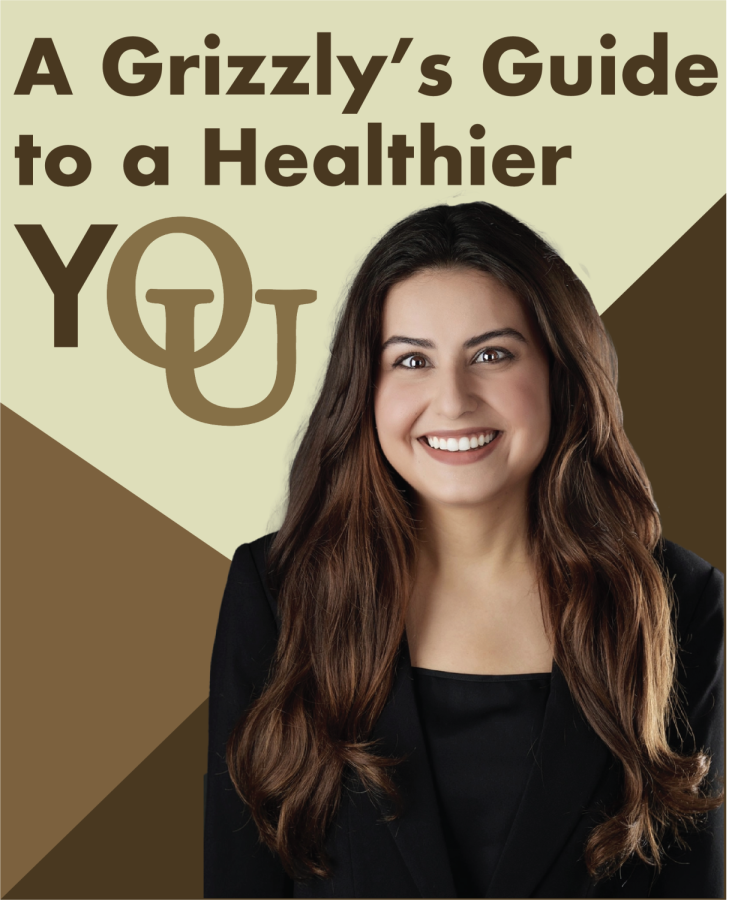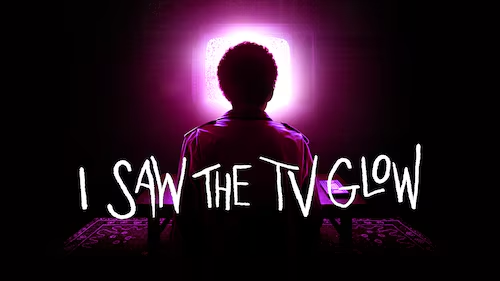A Grizzly’s Guide to a Healthier YOU: A back-to-campus guide on COVID-19
Photo courtesy of Gabrielle Abdelmessih
Campus Editor and Columnist, Gabrielle Abdelmessih.
On Jan. 24, an OU Communications email was sent out to the campus community detailing the Feb. 1 return to in-person and hybrid learning instruction.
The rapid spread of the omicron variant, which prompted this semester’s delay in face-to-face instruction, is slightly subsiding, with hospitalizations and the seven-day average decreasing — but we’re not out of the woods yet.
Preventative measures like vaccinations, testing and mask-wearing are still a necessity. It doesn’t mean it isn’t challenging to find tests and masks, though. In this column, I share some local and on-campus resources.
What type of mask should I be wearing?
According to CDC recommendations, masks should have two or more layers of washable, breathable fabric, completely cover your nose, mouth and chin, and fit snugly against the sides of your face and not have gaps. The CDC also recently made some changes to these recommendations, now stating that people may choose to wear N95 and KN95 masks, as they offer the best protection against COVID-19.
Here are some web pages the OU Communications email recommended for information on effective use of respirators and masks:
Where can I get these masks?
According to Ann Rayford, Interim Director of the Graham Health Center (GHC) and Nurse Practitioner, “The university will have KN95 masks; 3-ply disposable masks and washable, 3-layer cloth masks available on request. Students can obtain one at the Oakland Center Welcome Desk, the Food Pantry or the CSA service window.”
The Biden Administration is also expected to begin distributing 400 million N95 face masks to local pharmacies and community health centers in early February. Information about this mask distribution will be included in a future column when it is available.
What are some of the omicron variant symptoms?
Dr. Katherine Poehling, an infectious disease specialist and vaccinologist, told NBC news these appear to be the prominent symptoms from omicron:
- Cough
- Fatigue or tiredness
- Congestion and runny nose
- Sore throat
- Headache
Where can I get a COVID-19 test?
Rapid antigen tests and molecular PCR tests are available at the GHC. Testing type and location is determined by GHC staff based on the individual situation, according to Rayford.
Drugstores like CVS, Rite-Aid and Walgreens are also offering both testing methods at no cost, as well as at-home testing that is available for purchase and for insurance reimbursement.
The Biden Administration is also offering four rapid COVID-19 at-home tests at no cost to every American household.
When should I get tested?
“All OU community members have a responsibility to ourselves and each other to reduce the risk of spreading any illness, especially COVID-19. All symptoms should be considered COVID-19 until proven otherwise with a negative COVID-19 PCR test. One cannot assume symptoms are “just a cold” or ‘just allergies,’” Rayford emphasized.
Additionally, students, faculty and staff are required to fill out the Daily Health Screening before coming to campus or leaving their on-campus residence, and are instructed not to come to campus if they have symptoms.
Is the at-home COVID test effective at detecting omicron?
Research is still ongoing, but rapid antigen COVID-19 tests may be less sensitive to omicron than to other variants, which is why testing over the course of multiple days might be necessary. The Michigan Department of Health and Human Services (MDHHS) has also released at-home testing guidelines, with answers to frequently asked questions that may be helpful to you as well.
What should students do if they test positive for COVID-19?
Students must alert the GHC if they test positive and will receive further instruction about their safe return to campus. There is not a universal COVID-19 plan for in-person instruction in class syllabi, so you might want to email your professor regarding their academic policy for COVID-related absences.
Seek urgent medical care if you have severe symptoms.
Notify people you may have been in contact with you were around (within six feet) for 15+ minutes in a 24-hour period to let them know about your positive results.
The MDHHS graphic included on this page also details quarantine/testing instructions based on your vaccination status.
If I haven’t gotten my primary COVID-19 vaccine doses and/or my booster shot, should I?
Yes. Vaccines reduce your risk of acquiring severe disease, hospitalization, death and spreading COVID-19 to others.
Appointments for free booster shots can be scheduled at GHC via the Secure Patient Portal and pop-up clinics will take place on campus as follows:
Tuesday, February 1 – Oakland Center, 11 a.m. to 3 p.m.
Thursday, February 3 – Hillcrest Hall, 11 a.m. to 2:30 p.m.
Pop-up clinic visits can be expedited by having a photo ID, insurance card and COVID-19 vaccination card on hand. You can also upload your insurance and vaccination card to the Secure Patient Portal.
I hope this clears up some of the confusion surrounding this subject. If there’s a portion of this column that needs further clarification or something that I didn’t address, please leave a comment below or email me via [email protected].
If you have a suggestion for a future column, please contact me. My goal is to make this column as helpful as it can be for the campus community.










Yousef • Feb 3, 2022 at 8:40 AM
This article spreads fake news. The jabs no longer prevent transmission. The CDC director went on CNN and made a comment about it.